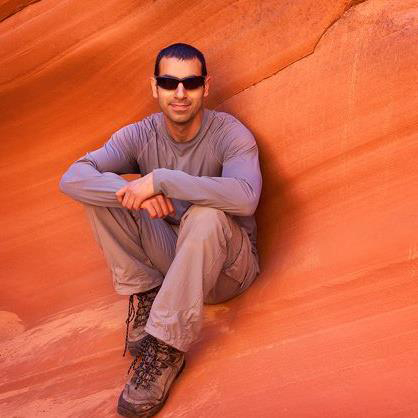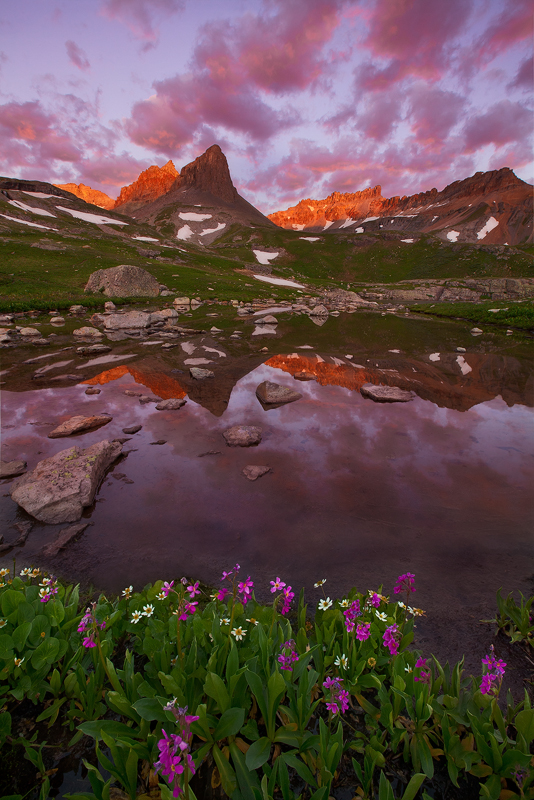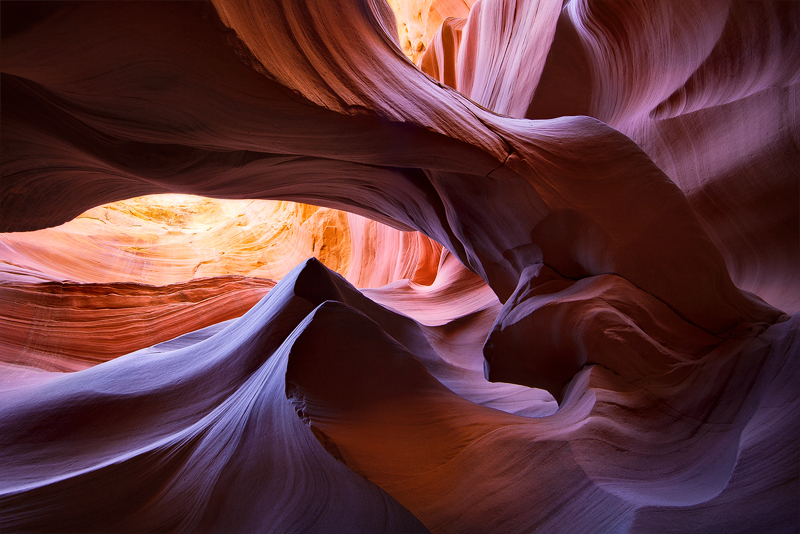
|
|
|||||
|
Featured Photographer, May 2013: Koveh Tavakkol
This month, our featured guest is Koveh Tavakkol. We want to thank Koveh for taking the time to answer our questions, and share some of his insights with us! Please visit his site links to see more of his incredible work, and to let him know you enjoyed this interview. :: Your bio says you got your start in photography in 2008, was there any interest in photography prior to that time? What was it about that 40D that changed everything for you? I would say I have always had an interest and appreciation for the beauty of photography, but it wasn't until 2008 when I purchased my first DSLR camera that I took it on seriously. I purchased the 40D used on Craigslist, and as soon as I held it in my hands I knew I wanted to learn everything I could about using it. For the first time I had a camera that could do way more than I was capable of doing with it, and I wanted to learn to push the camera instead.
:: Was it always outdoor related photography from the beginning or did you venture into other subject matter? Your bio statement on your website mentions a home studio, I was curious about that aspect of your photography? Having an appreciation for photography, I knew good photos no matter what the subject matter was. At first I wasn't really sure what I wanted out of photography, and I was eager to learn. To be honest, I dabbled a bit with landscape photography and it didn't immediately take, so I started playing around with other things. I setup a small studio and started some Strobist projects to learn lighting and off camera flash work. In the end though, my love for being outdoors, traveling and exploring all paired nicely with landscape photography, so I eventually came back and the second time it stuck.
:: You're self-taught; what did you find to be the biggest challenge in your learning curve? What discovery, for you, was the biggest "AH-HA" moment? What was the one thing you wish you’d learned earlier in your progression? Modern day digital photography in my opinion takes place partly in the field and another part in the digital post processing. For me my photography didn't really take off until I really learned the post processing aspect. There are a lot of advanced techniques that you can incorporate to your field shooting, that can only be done if you know how to pull them together in post later. Things like exposure blending and focus blending. The "AH-HA" moment for me came when I was out in the field shooting and I knew that I could take a photo in the field, with the confidence of being able to pull it together in post. Once you reach that comfort zone, then you longer worry about losing a good opportunity or playing it safe in the field, in order to get the shot.
:: What was the best piece of advice you got from another photographer(s) while getting your start? What was something (if any) you found really annoying or struggled with in regards to acquiring new knowledge when it comes to dealing with other photographers? Honestly the best advice I got when I first started, was from a friend and fellow professional photographer Erik Stensland. It wasn't some magical formula to taking good photographs, or some tip to take better pictures. It was simple encouragement when I needed it most. I was fumbling around and not producing any images I was satisfied with, but he pulled me aside at a photography event and quietly told me that he thought I had talent and to keep at it. That he would keep an eye on my work because in a few years I would be producing amazing images. The encouragement really stuck with me, and gave me the motivation to push through, learn and improve. I think the toughest part about the learning curve is that a lot of photographers that get well established are pretty tight lipped about helping out someone who is new. With the exception of a few people who get lucky in finding someone to help them out, you either have to brute force your way through, or find a good workshop that will help you learn what you need to know.
:: Being self-taught and getting started in 2008, makes you relatively new into photography in some sense, have you found any resentment or issues from older photographers on your success for having achieved a high skill in such a relatively short period of time? Like with everything else, there are always some good people and a few bad ones. I have certainly gotten my share of resentment through the process, but I don't let it bother me. I do this because I enjoy it, not because I care what someone else thinks. For the most part though, the photography community has been a great one. I have met some amazing and talented people, a lot of whom are really great friends now.
:: You’ve lived in a variety of locations over your life (Turkey, England, Iran, Kansas, and Colorado) what place has been your favorite? How has living in such a wide variety of places affected you as a photographer? Where do you live now? What do you enjoy most about your current location? Having lived in so many areas, do you find you have a need to keep moving, or do you see yourself sticking in a particular location? For me any place new is my favorite place. I love traveling and exploring the amazing beauty all over the world. I am not one to keep going back to a favorite place, and prefer spending my time exploring or seeing new areas. If anything, living in different places has given me an appreciation for the unique beauty each place has to offer. I currently call the beautiful state of Colorado home however, which has a lot of amazing scenery and photography locations. I do find it hard at times to stay in one place, but for now I am keeping the urge to move in check by traveling frequently. This gives me a nice mixture of something new, and keeps me excited to be back photographing in my home state.
:: How much time do you spend with underwater photography? What are the biggest personal challenges to you under the water? How much of what you do above the water can you take with you under? I would love to spend more time doing underwater photography, but recently I have been so busy traveling that I have not had an opportunity to plan a good diving trip. Underwater photography is a whole other amazing branch, with both its own benefits and challenges. For one, there is no such thing as an 'iconic' shot underwater. Everything is new, and depending on conditions changing. It also comes with a unique set of challenges however. On top of all the regular challenges of finding a good composition, managing the camera and settings, you have to fumble around with a giant underwater housing with strobes. You have to worry about things like currents and buoyancy to make sure you are not damaging corals. Skittish underwater life, and the pressures of scarring the sea life off with your exhale of bubbles. You really have to be a comfortable diver before undertaking the photography component.
:: What is your favorite piece of non-photographic gear and why? Non-photography gear I would have to say my hiking Garmin GPS. Most of the really scenic places here in Colorado are in the backcountry. A good hiking GPS with some good topo maps is essential, not to mention that I save all of my hikes for future use. Sometimes in early spring the trails are completely under 2-3 feet of snow, and without the GPS route it would be impossible to find a location.
:: What is it about landscape photography that continues to keep you interested? Do you find that the recent influx of so many landscape photographers coming into the field has at all diminished your enjoyment of this type of photography? How do you try to differentiate yourself from the masses? I enjoy capturing the beauty I see through my travels, so for me the interest is always there. A lot of people are not fortunate enough to see some of these places, so they can share them through our photographs. There is a big world out there for anyone who is bothered by the influx of photographers out there. You don't have to shoot the iconic spots if you get tired of them. There are endless amounts of less known and less photographed locations to explore.
:: What is the number one place on your photo "bucket list"? What is it about the location that inspires you? This is a tough one for me, because as I mentioned anywhere new is top on my list. I recently spent some time in the Everest region of Nepal, in Iceland and I am getting ready to head out to New Zealand. Beyond that, I would love to spend some time in Africa at some point. I think a big part of it has to do with me just wanting to go and explore the area, but it would be amazing to photograph the raw beauty there as well.
:: A lot of your work has amazing post-processing technique. Do you find you have to ever justify your works’ reality with viewers? I’m curious how you handle the comment that many landscape photographers get, "This isn’t real…it’s all Photoshop." If this question comes up from a non-photographer, I usually handle it with educating them on what post processing is and how it is an integral part of the digital age. A lot of times the harder critique is actually from other photographers. For me, photography is about capturing images that help portray the beauty of the scene and location. I never add anything to the images that isn't there, but I do incorporate techniques like focus blending and multiple exposure blending to pull together a final image. I don't make a distinction between some things that can be done within the camera vs. what can be done in post. I utilize all techniques both in and out of the field to try to portray the strongest image possible. Sometimes you have to use a filter to attain longer exposures to streak water, and other times you have to blend multiple exposures to overcome the shortcomings of depth of field and dynamic range.
:: What problems do you see facing the profession of outdoor photography moving forward? What steps do you think the photography community can take to remedy these problems? I think the biggest struggle facing the profession is finding ways to earn enough money to make it a sustainable business. It is becoming increasingly difficult to make any decent money from selling stock or even prints. A lot of professional photographers have turned to workshops, and I think that is a great avenue to sustain the profession. However, I think the photographers doing workshops need to focus on offering more of a unique experience to clients. Not simply taking a group to different locations to get them an iconic shot, but rather working more closely with smaller groups to provide a better experience. Incorporating in and out of the classroom techniques and finding ways to really make the experience stand out.
:: What personal struggles do you find with your own progression as a photographer? Are there any limits, or issues you struggle with? One of the biggest struggles I had through the process was discovering my own style. This is something a lot of photographers grapple with as they are learning the art, both in your style of compositions in the field as well as your own post processing style. We are all influenced by other photographers out there, but it is equally important to figure out your own style. This can help to make your own work unique as well as recognizable.
:: What is the scariest thing that has ever happened to you while on a photo trip either above water or under it? As crazy of places as I have been throughout my time in photography, it's amazing I don't have more stories to tell you here. Somehow I have managed to skate by without anything serious, which is surprising considering I usually put myself in a lot of sketchy situations. I think the one that comes to mind though is the time I was half charged by a full sized Elk. Despite giving it a respectful wide distance and trying to get around it, the Elk charged a friend and I. We both froze in stunned awe at this massive horned beast charging down on us. Fortunately it was giving us a warning and not a full charge, one which we took very seriously and decided to go somewhere else entirely.
:: If you have to pick one piece of your portfolio to show a client that you feel BEST sums up your work, which piece is it? What about that piece connects you to it so strongly? Although I tried to include a wide range in the images I have provided you, I think the one I would say is my favorite is the image from Ice Lake Basin. Partly because it is from a beautiful location in my own home state of Colorado, but also because it incorporates a lot of the techniques I previously mentioned. It is an image that utilizes my focus blending and exposure blending techniques in the same image, while at the same time showing why I enjoy wide-angle photography so much. With my wide-angle photography, I strive to find good compositions with a strong foreground, mid and backgrounds.
:: You teach photography workshops as well, what has being self-taught helped you bring to the table that you think helps newer photographers? Do you have a certain piece of advice you try to impart with people seeking your advice on the field? I think the biggest benefit of being self-taught is that I try to teach the concepts more practically. Instead of trying to teach the concepts in a book structure, I try to recall how I taught myself these concepts and what helped me learn and understand them. That said, the biggest advice I can give anyone is that like everything else, the key to getting better is to practice. You can learn the theory and all the technical aspects of photography, but until you go out and practice the application, all you have is a facts sheet. Never forget to incorporate the artistic components to your photographs, because without them you can have a technically perfect photo that simply is not interesting.
:: How much does having new gear play into your photography planning? Are you more concerned with new bodies, or adding lenses and other accessories to your bag? Is there one piece of equipment that is on your wish list? These days the only reason I upgrade gear is because I am truly hitting some limitations of the gear. Wider lenses to get a little wider images close-up. Sharper lenses. Better noise handling on a newer body. I am definitely not a believer that the gear makes the photographer. There are tons of fantastic photographers that are using older or inferior gear. Don't just go out there and buy the latest gear. Learn how to shoot with what you have now, and you will truly know when you have hit a limitation of the equipment. I have been an entirely Canon shooter thus far, and have been fighting the urge to switch over to the Nikon D800E with a 14-24 lens combo. That combination would be fantastic for the type of wide-angle photography I love, but I am holding out to see what Canon comes out within the next year.
:: How do you try to find a blend between shooting, marketing, social media, and having some kind of life that doesn’t involve photography? What’s your planning strategy? It's a tough balance, and in my case I am managing a full time job on the side as well as running the photography gig. For me, shooting is definitely a priority over some of the other components like social media. I post images in a variety of locations to get my work out there, but try not to spend too much time there. I think there are some very successful photographers on social media, who have made it work for them. For me though, I would rather spend the time doing what I enjoy out in the field and improving my photography. Time does become an issue however, so you have to find ways to maximize your time. For example, I recently made the decision to stop doing my own printing, preparation and shipping of prints. I might make a bit more if I continued doing them myself, but the time tradeoff is just not worth it for me. |
Photographer Spotlight Interviews
|
|
 |
Other Cool Stuff→ Past Workshop Photos → 72dpi.com → How-To Articles → Photographer of the Month |
 |
Contact Us→ Contact Us → About Us → Site Map |
© 2009-2024 Aperture Academy, Inc.









